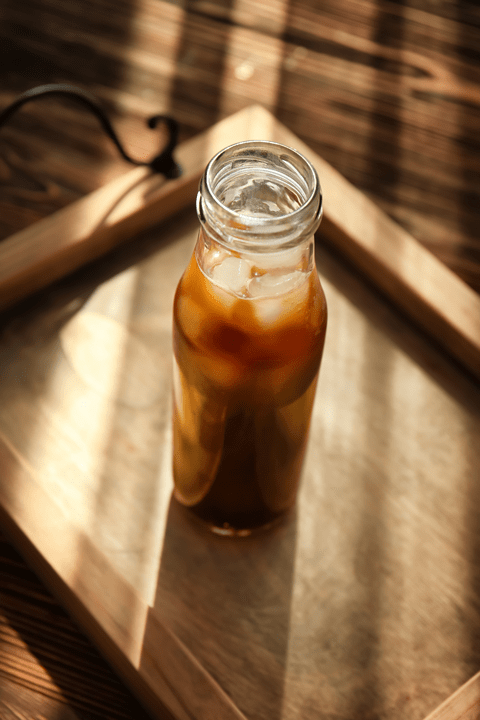

 Add to favorites
Add to favorites
Let’s start this off with a jaw-dropping statement. Did you know that sugar is found in 74% of packaged foods in our supermarkets? Regular sugar consumption can lead to serious long-term health problems, including excess weight gain, hormonal imbalance, skin and dental issues, osteoporosis, diabetes, and even some forms of cancer. One of the main problems with sugar, and processed fructose, in particular, is the fact that your liver has a very limited capacity to metabolize these substances, which can lead to non-alcoholic liver disease.
It is said that sugar is eight times as addictive as cocaine. When we eat sugary foods, we tend to feel good temporarily. And this is because it creates a biological disorder that is driven by our hormones and neurotransmitters which fuel sugar and carb cravings. It activates our tongue’s taste receptors, which then signals the brain, lighting up reward pathways causing a surge of feel-good hormones, like dopamine (the same chemical released in response to sex and drug use), to be released. So go ahead and have another cocaine cookie, a morphine muffin, or a smack soda! Maybe that’s a tad bit too extreme, or is it? How addicted to sugar are you? Have you ever tried to stop consuming sugar?
Repeated access to sugar over time leads to prolonged dopamine signaling, greater excitation of the brain’s reward pathways and a need for even more sugar is required to activate all of the midbrain dopamine receptors like before. The brain becomes tolerant to sugar. Therefore, more is needed to attain the same “sugar high.”
What I am sharing here hardly begins to break the surface on all the negative effects that sugar has on our bodies. You can do further research on this topic if you want to know all the nitty-gritty facts. I am here to help encourage you to start substituting sugar-laden foods with healthier food/drink choices.

Towards the end of this post, I list out sixty-one different names that are disguises for sugar. I encourage you to print (NouveauRaw – Sugars in Disguise) and tape it to your fridge, pantry, any and everywhere that will keep you mindful and on track. But there are many processed foods that you may not even think of as having sugar in them, such as (but not limited to);
Before you start the removal of sugar from your diet, you need to identify where sugar hides in all the different foods and beverages you and your family consume. I think you will be shocked as to how much sugar is in your home once you start reading the labels.
Keep in mind that refined starches (grains, rice, etc.) which easily break down into sugar and increase your blood sugar levels, which cause increased cravings, slow the metabolism, and lead to fat storage. Instead, aim to get your carbohydrates from whole fruits, veggies, and nuts. Also, stay away from any form of sugary drinks. They bee-line straight to your liver. It turns off the fat storage machine in your liver, leading to dreaded belly fat.

The severity of your symptoms largely depends on the amount of sugar in your diet beforehand.
This website is not intended to provide medical advice. All content, including text, graphics, images, and information available on this site is for general informational, entertainment, and educational purposes only. The content is not intended to be a substitute for professional diagnosis or treatment. The author of this site is not responsible for any adverse effects that may occur from the application of the information on this site. You are encouraged to make your own healthcare decisions, based on your research and in partnership with a qualified healthcare professional.
Is roasted carob a sugar ?
Hello Jimmy,
Yes, it is a form of sugar. Carob fruits are characterized by high sugar content (48%–56%) (mainly sucrose, glucose, and fructose), 3%–4% protein, a low‐fat content (0.2%–0.6%) (Batlle & Tous, 1997), low content of alkaloids, and high content of dietary fibers, especially in the seeds. – https://www.ncbi.nlm.nih.gov/pmc/articles/PMC6261171/
blessings, amie sue